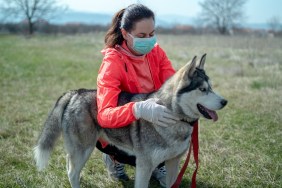Wanna go to vet school? Go ahead, while the getting’s easier.
You read that right. It’s getting easier to get into veterinary school. OK, so it’s only a titch less taxing than it’s been over the last three decades, but who’s counting?
Actually, it might surprise you to know that there are lots of bean-counters out there doing the math on this one. And — guess what? — while it might sound great if you’re applying, the news is definitely not good.
Why? Because we need more vets than ever before. It’s predicted that in twenty years the U.S. will suffer a shortage of 15,000 veterinarians. Our national public health needs alone are responsible for that figure, which comes to you courtesy of the Association of American Veterinary Colleges.
In last week’s JAVMA (Journal of the American Veterinary Medical Association), the question was put right out there for veterinarians everywhere to dissect: “Will veterinary education hit a tipping point?”
Translation: Will that stalwart supply and demand curve keep its groove so that veterinary medical education maintains its elite membership status? Or, will the almighty applicant-to-seat ratio plummet so that just anyone can vie for graduation at a veterinary institution?
Now, I realize that last bit sounds a tad snobbish. But it’s nonetheless defensible, in that standards are undeniably critical to professional quality. You wouldn’t want your cat to undergo radioactive iodide treatment from a vet who’d had to take physics twice before she passed the damn course, right?
No, you wouldn’t. Yet given the direction veterinary education is headed (read: ever more colossal sums of student debt), it makes sense that some of the highest quality applicants might choose to flee in horror rather than subject themselves to a lifetime of loan repayment in lieu of a proper lifestyle (i.e., the kind offered by competing professions).
Yes, looming ahead is a tipping point where veterinary quality will suddenly begin to be sacrificed on the altar of warm bodies. Luckily, it seems we have not yet reached it. But our profession’s leaders will have to scramble to find ever more creative means to help offset the student debt issue if we’re to prevent what currently seems inevitable.
For the record, I’m optimistic on the subject. Though I’ve often criticized our leadership for its race-to-the-finish-line antics in light of at least two decades’ notice, I will say this: Veterinarians have been hopping mad about our shortage issues for years and it’s only when our national security is demonstrably threatened that any political traction is attainable.
I’m sure that reality says more about the state of our nation than it does about veterinary medicine.










